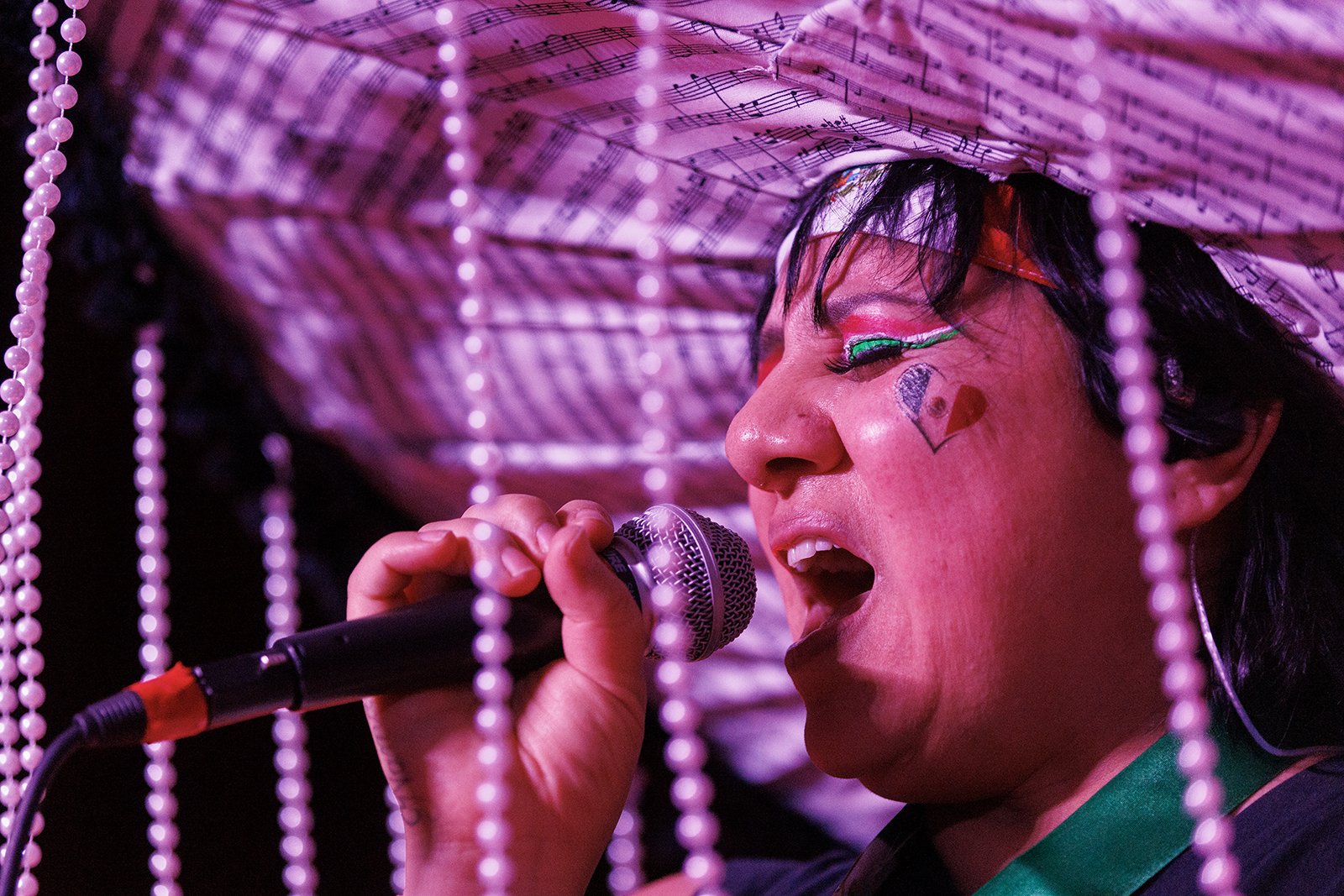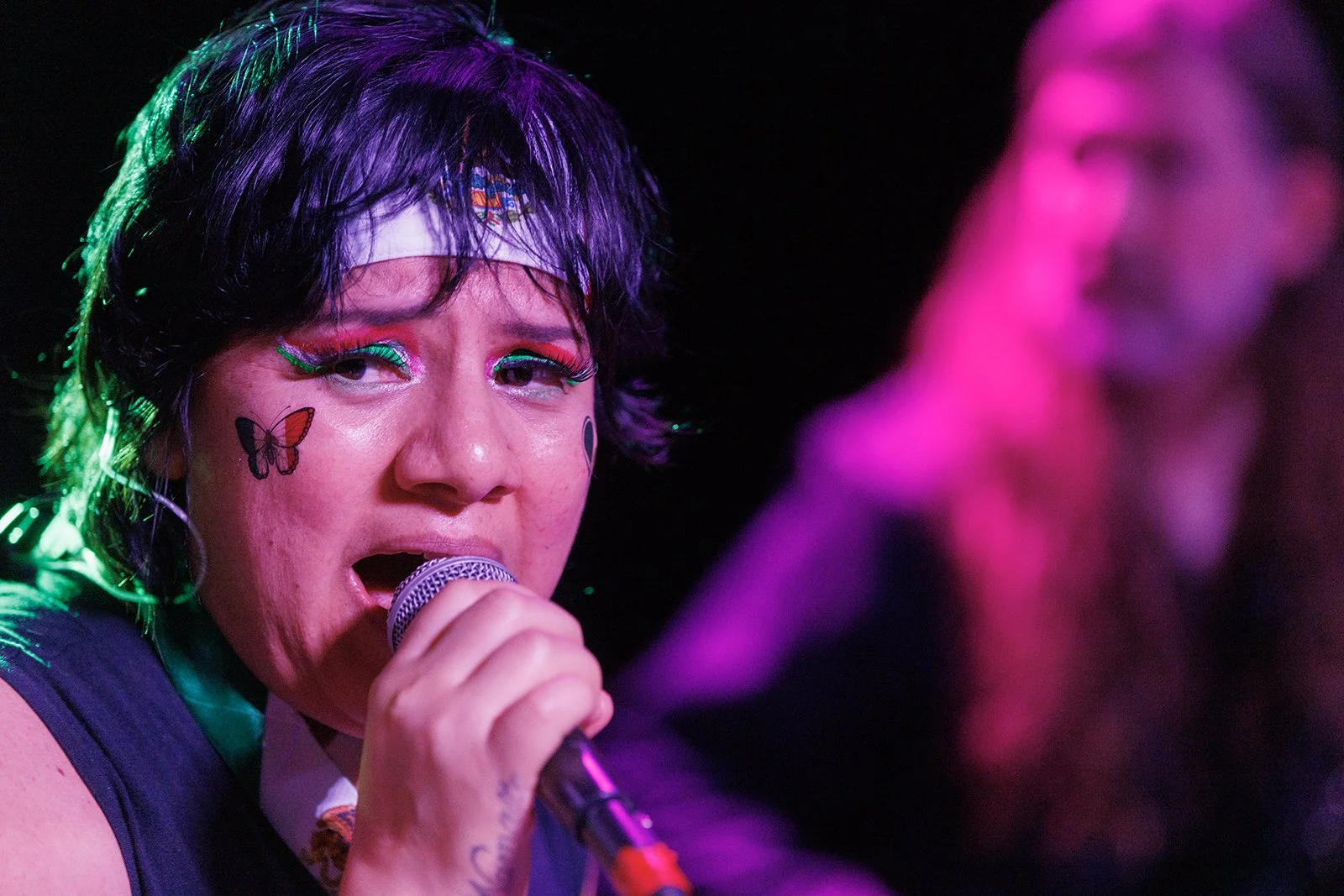Felisa Hernandez on Autism, Ancestry, and Activism.
HERNANDEZ BELIEVES FIGHTING INJUSTICE MUST COME IN MANY FORMS.
Story and Photos by Giles Clasen
Felisa Hernandez’s music is a form of resistance, a spiritual practice, and a deeply personal fight for visibility.
Performing under the name LatinSoul, Hernandez blends activism, ancestry, and her identity.
Hernandez was diagnosed with autism in 2003 while seeking answers for her daughter’s development. As Hernandez researched her daughter’s behaviors, she began to see reflections of her own experience.
“It meant everything to me [to be diagnosed with autism] because I knew that I was different,” Hernandez said. “I knew that my brain sees the world differently. I was always alone, and I’ve always been in this state, like in a whole different world.”
She took a self-assessment and scored high, prompting her to undergo professional testing.
“It really changed my world, and it allowed me to give myself empathy and patience for myself,” Hernandez said. “And, you know, I’ve started looking into autism, and becoming an advocate, and trying to learn as much as I can for myself, and being able to explain it to others.”




Hernandez had always struggled to advocate for herself. She found simple tasks like applying to festivals, negotiating with music executives, and reading difficult, and she couldn’t understand why it was simple for other musicians.
When she learned she was neurodivergent, it all clicked for her. She could see a reason for her struggles, which empowered her to fight on and find new solutions to overcome her struggles.
Still, she never stopped creating. Her performances regularly include a large autism awareness sign onstage and an explanation for the need to make space for everyone.
“It’s my way of advocating for autism and remembering that I have stories to tell on stage,” she said.
Those stories include her heritage as a daughter of parents who immigrated from Mexico as teenagers.
According to Hernandez, her parents were about 15 or 16 when they came to the U.S.
“My dad came by himself,” said Hernandez. “He left home, I think he said at the age of 14, walked from Mexico to here, [and] said he probably could have died of starvation several times.”
Hernandez recalled one story her father told of being without food or water for days while riding a train through the desert to the US border.
“He opened up the door to the train, and in front of him, there was just a pile of sugar cane. And that sugar cane sustained him for a good couple of days.”
Both of Hernandez’s parents received their citizenship through President Ronald Regan’s 1986 Immigration Reform and Control Act, which offered amnesty to those who entered the United States before 1982.
Hernandez has channeled her family’s history into advocacy during the Donald Trump presidency. Though she hasn’t personally faced deportation, she has seen its impact on relatives.
“I have had family members, cousins, be deported, and it’s sad,” Hernandez said. “I could not even imagine being separated from my child. That should never happen.”
LatinSoul brought their big sound to a fundraiser for Denver immigrant rights advocate Jeanette Vizguerra, who is being held at the Aurora GEO ICE Detention Center and faces deportation.
“I had to find different ways to fight back. For me, that means music. That means prayer. That means keeping the traditions of my ancestors alive,” Hernandez said.
Despite her family history and personal beliefs, Hernandez tries to keep her music accessible to everyone.
Her goal is to help individuals find her music and then connect with the message.
“I just don’t want to get thrown into this, into a lot of the political stuff, because my music is for everybody, not [just] for certain people,” she said. “I want to wake up our senses, and remind people that the little child within you still exists, and it’s wanting to break free to be out. To play, to love, to have fun, to be innocent.”
Every performance, she said, is a form of healing and a step toward justice. “We’re not just human,” Hernandez said. “We’re spirit, too. And we’ve forgotten that. But my music is here to help us remember.”.

